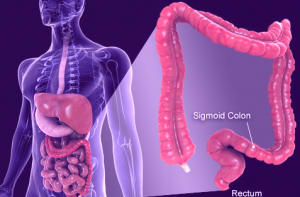Bowel cancer or colorectal cancer is the third most misdiagnosed cancer in the world. It has been seen that bowel cancer is more common in developed nations with more than 50 percent cases registering in the developed countries like US, UK and other European countries. The risk of contracting bowel cancer is 7 percent in the US. Women are more at risk of bowel cancer compared to men, if they have lifestyle problems that contribute to the problem.
The American Cancer Society study has found out that women who smoke are 40 percent more likely to die from colon or bowel cancer compared to the women who never smoked. In case, of men; this percentage is 30 percent. Women who have breast cancer, uterine or ovarian cancer have an increased risk of bowel cancer.
Bowel cancer symptoms in women
1. Blood in stool- Rectal bleeding may hint at bowel cancer. There can be growth of cancerous tumors in the rectum area. During a bowel movement, the stools can press on the cancerous tumor, while moving through the colon. This cause the tumors to bleed causing blood in stool. But this does not mean that rectal bleeding or blood in stool is bowel cancer, it can also mean other intestinal disorders like diverticulitis and hemorrhoids.
2. Change in the appearance of stools– The stool may be pencil thin and the color of the stool can also change to black due to blood I them. But this again cannot be taken in isolation to believe that the woman has bowel cancer. Read about various types of stool and normal bowel movement
3. Irregular bowel movement– Irregularities in bowel pattern is noticed in women who have bowel cancer. There may diarrhea, watery stools and sometimes, constipation. The woman may also find it painful to void her bowels. Women with chronic constipation are more at risk of bowel cancer.
4. Pain in the abdomen- Abdominal discomfort, mild or moderate can also be symptoms of bowel cancer in women. During bowel moement, the abdominal pain can be more painful. Abdominal discomfort along with bloody stools is something that needs to be diagnosed quickly
5. Unexplained weight loss-Sudden weight loss along with the above mentioned symptoms can also be a hint. It has been observed that bowel cancer can cause a woman to lose weight rapidly
6. Nausea– Nausea is one of the early signs of bowel or colon cancer in women. They will no longer be interested in eating meals adequately. There is loss of appetite and the nauseous feeling can make them vomit as well.
7. Lethargy-The woman may feel weak enough to routine activities. Frequent bouts of fatigue is evident in women with bowel cancer. The reason for fatigue can be anemia, which is a substantial drop in the red blood cell count. Women may also contract high fever that may last for more than a week.
Diagnosis of bowel cancer in women
The diagnosis of bowel cancer in women can be in the form of
• Fecal occult blood test (FOBT)—Test for finding hidden blood in stool
• Sigmoidoscopy— A lighted instrument called sigmoidoscope is inserted in the rectum and lower colon to look for precanceous and cancerous growth in the rectum and lower colon that can be removed and diagnosed.
• Colonoscopy— A lighed instrument known as colonoscope is used to check for precanceous and cancerous growth in the rectum and lower colon that can be removed and diagnosed.
• Virtual colonoscopy (also called computerized tomographic colonography)— Also known as Computerized Tomographic Colonography, this special x-ray technique takes 3D pictures of the colon and rectum. The computer then assembles these pictures into detailed images that can look for polyps and abnormalities in the colon.
Bowel cancer treatment in women
The treatment for bowel cancer in women depends on the spread of cancerous growth in the colon. If detected early, the cancer cells will be evident only in a small region of the colon. This part of the colon that is tumor infested can be removed with a minor surgery. If the cancerous growth has spread and affected the inner layers of the colon, then colostomy or surgery has to be done to remove that part of the colon. The patient may also have to undergo chemotherapy(drugs that stop the growth of cancerous cells) and radiation therapy(use of high energy xrays an other radidation) to kill cancer cells and prevent their growth) before or after surgery for better recovery
